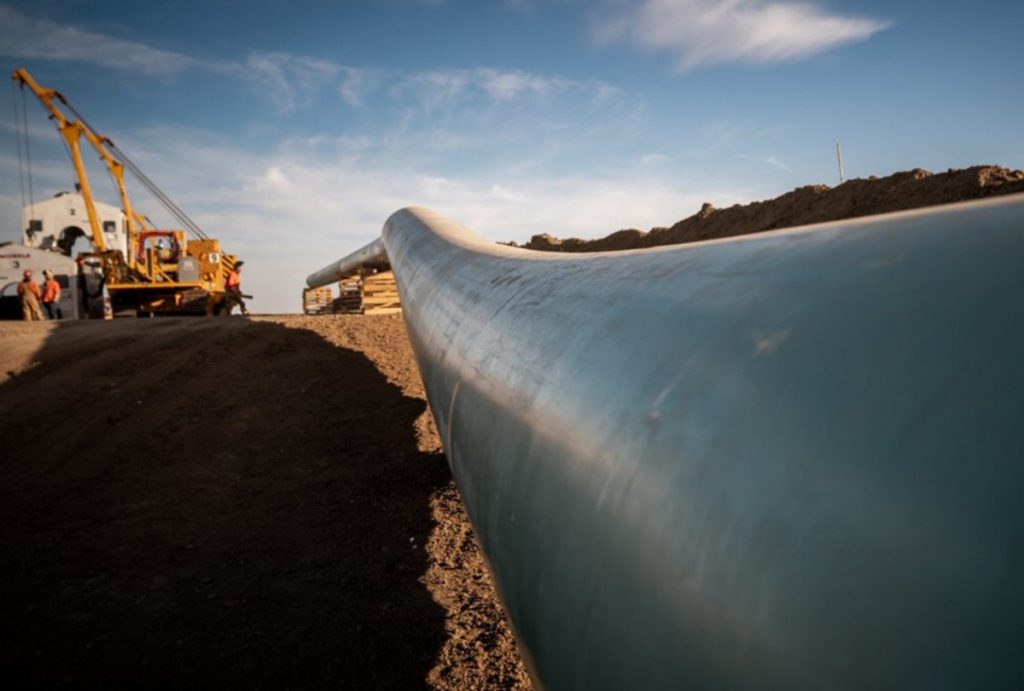By Shariq Khan and Georgina Mccartney

- Canadian crude oil discount to US oil widened after shutdown
- South Bow stock tumbled to lowest since October
- Amount of spill is not known yet, pipeline to be shut until at least Wednesday
NEW YORK/HOUSTON, April 8 (Reuters) – The Keystone oil pipeline from Canada to the United States was shut on Tuesday after an oil spill near Fort Ransom, North Dakota, its operator South Bow (SOBO.TO) and the state’s Department of Environmental Quality said.
The 4,327-km (2,689-mile) Keystone pipeline is a major conduit for the supply of crude oil from Alberta to U.S. refineries in Illinois, Oklahoma and along the U.S. Gulf Coast. Some U.S. refiners, especially in the Midwest, rely heavily on the type of oil produced in Canada and delivered by Keystone.
South Bow shut down the pipeline after its leak detection systems detected a pressure drop, a spokesperson said.
The amount of oil that leaked from Keystone is unknown, said Bill Suess, a program manager at the North Dakota Department of Environmental Quality. He said he expects the pipeline to be shut until at least Wednesday.
South Bow did not provide an estimate of the size of the spill or a timeline for the restart.
The company’s shares were last down nearly 4% to C$31.99, after hitting their lowest since October at C$30.99 earlier in the session. RBC analysts noted that Keystone’s physical integrity is one of the biggest risks for South Bow investors.
Oil market participants were bracing for supply disruptions from the shutdown, two crude oil traders told Reuters, requesting anonymity as they are not authorized to speak to the media.
The price of Western Canadian Select crude oil fell to a wider discount against U.S. West Texas Intermediate crude. WCS for May delivery traded $11.25 below WTI on Tuesday, compared to a $9.20 discount on Monday, a broker said.
At least five prior spills have been reported on Keystone since its start-up in 2010, which took one to three weeks to resolve, said Rory Johnston, energy analyst and founder of the Commodity Context newsletter.
The most recent major spill was in December 2022, when around 14,000 barrels leaked in rural Kansas due to an issue that originated during construction of the pipeline. It was the biggest U.S. oil spill since 2013, and shut a portion of the pipeline for 21 days.
Reporting by Shariq Khan in New York, Georgina McCartney in Houston, and Amanda Stephenson in Toronto; Editing by Liz Hampton, Franklin Paul, Joe Bavier and Rod Nickel
Share This:




 CDN NEWS |
CDN NEWS |  US NEWS
US NEWS 


























